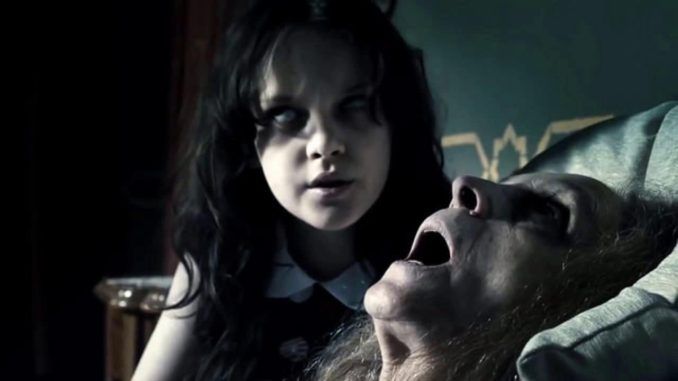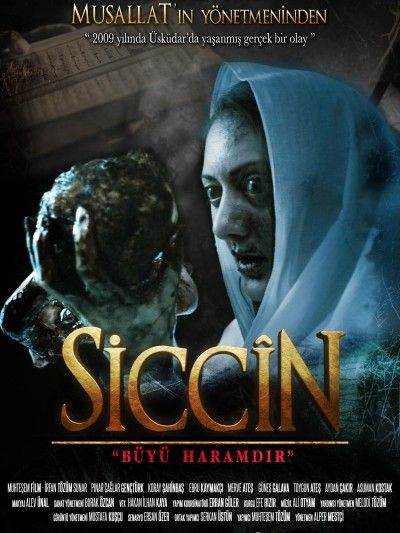
Rating: C+
Dir: Alper Mestçi
Star: Ebru Kaymakci, Pinar Caglar Genctürk, Koray Sahinbas, Merve Ates
“To be involved with sorcery is one of the biggest sins that mankind could commit, according to Islam.” So proclaims a caption at the end of this, which seems rather disingenuous. Yes, the previous ninety minutes have certainly shown you the downside of meddling with occult forces. But considering this is basically exploiting the topic for movie purposes, it definitely feels like the makers want to have their demonic cake, and eating it too. We begin with Öznur (Kavmakci) visiting a medium and being warned off pursuing a relationship with her cousin, Kudret (Sahinbas). Naturally, she doesn’t listen. 12 years later, Kudret is married to Nisa (Genctürk), but had a brief fling with Öznur – who is now pregnant as a result.
After a fight with the father, Öznur loses the baby, and vows vengeance as a result. This involves more occult shenanigans, which will summon an evil spirit or djinn, to take up residence in Kudret’s household, and wipe out Nisa’s entire bloodline. This does seem a little callous. Sure, Kudret was a bit of a dick, to put it mildly. But why target Nisa, who has no clue about her husband’s infidelity, and worse still, Ceyda (Ates), their blind daughter? I guess the “you cost me my child, so I’m going to take yours” argument applies, but still seems harsh punishment. However, the twisted visions and malevolent results are not limited to them. Öznur is also hallucinating, and it appears the scope of the djinn‘s malevolence is not strictly limited.
 First time I’ve seen a film on YouTube which requires you to accept a “The following content may contain suicide or self-harm topics” warning before it’ll play. This presumably refers to the sequence where Nisa tries to hang herself – though I guess it could be where her bedridden mother takes an impromptu shower of scalding soup. I wouldn’t say these were the most disturbing sequences. Pretty much the entire second half consists of a series of djinn-provoked visions experienced by the various characters, in lieu of plot progression. On their own, they are fine, it’s just they demonstrate a diminishing return. Eventually, Kudret finds an imam willing to do the necessary ritual, and we basically go full Exorcist.
First time I’ve seen a film on YouTube which requires you to accept a “The following content may contain suicide or self-harm topics” warning before it’ll play. This presumably refers to the sequence where Nisa tries to hang herself – though I guess it could be where her bedridden mother takes an impromptu shower of scalding soup. I wouldn’t say these were the most disturbing sequences. Pretty much the entire second half consists of a series of djinn-provoked visions experienced by the various characters, in lieu of plot progression. On their own, they are fine, it’s just they demonstrate a diminishing return. Eventually, Kudret finds an imam willing to do the necessary ritual, and we basically go full Exorcist.
If the story runs out of ideas in the middle, I was more impressed by the technical aspects. In particular, the audio work is excellent, with a soundtrack which dials the unsettling sounds up to 11. The components of the actual curse are a bit disturbing too, requiring the sorcerer – apparently accompanied by his aged mother – to dig up a corpse, carve verses from the Koran on its bones, then wrap them in the intestines of a freshly-slaughtered pig (an element not exactly limited to “noises off”). The results prove highly resistant to Muslim anti-magic, leading to a rather abrupt ending, albeit one which definitely acts as a health warning against this kind of thing. And, I imagine, having extra-marital affairs too.
